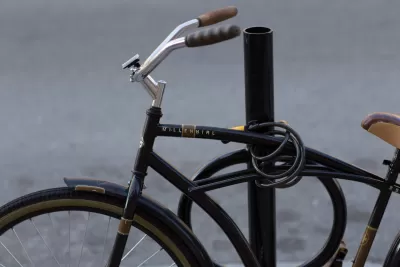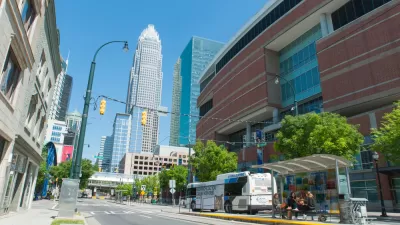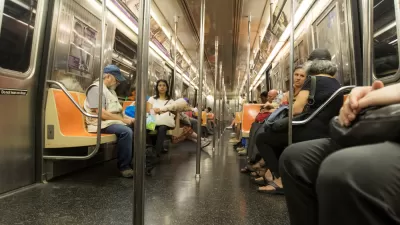It's no secret that Millennials will use alternate modes when they're available and accessible. It's also no secret that adapting streets to those modes—and using them—can be a bargain.

Federal transportation funding is scarce, and localities are making up the difference. "With no long-term solution in place -- or even in sight -- for the sputtering federal Highway Trust Fund, state and local governments are significantly increasing their own transportation spending."
According to a report prepared by Deloitte University Press, "By supporting alternative approaches such as car-, ride- and bike-sharing, jurisdictions can greatly improve mobility for residents without the need to spend billions of dollars on new roads, bridges and tunnels."
Millennials have proven quite open to these changes: "people in the 18-to-34 age group are more likely than those of other generations to choose the most practical transportation mode -- whether it's driving, public transit, biking or walking -- for each trip and that this flexible concept of mobility is spreading." It's also worth noting that out of car-sharing, bike-sharing, walking, and car ownership, "public transportation is ranked among millennials as the best mode to connect to all other modes."
In denser urban areas where it makes more sense, the car-free option is gaining traction as an economical choice. "[Young people] are more likely to cite the need to save money and avoid traffic, as well as environmental considerations, as motivations for their transportation choices and routines."
FULL STORY: The Transportation Choices That Millennials Want

Planetizen Federal Action Tracker
A weekly monitor of how Trump’s orders and actions are impacting planners and planning in America.

Chicago’s Ghost Rails
Just beneath the surface of the modern city lie the remnants of its expansive early 20th-century streetcar system.

San Antonio and Austin are Fusing Into one Massive Megaregion
The region spanning the two central Texas cities is growing fast, posing challenges for local infrastructure and water supplies.

Since Zion's Shuttles Went Electric “The Smog is Gone”
Visitors to Zion National Park can enjoy the canyon via the nation’s first fully electric park shuttle system.

Trump Distributing DOT Safety Funds at 1/10 Rate of Biden
Funds for Safe Streets and other transportation safety and equity programs are being held up by administrative reviews and conflicts with the Trump administration’s priorities.

German Cities Subsidize Taxis for Women Amid Wave of Violence
Free or low-cost taxi rides can help women navigate cities more safely, but critics say the programs don't address the root causes of violence against women.
Urban Design for Planners 1: Software Tools
This six-course series explores essential urban design concepts using open source software and equips planners with the tools they need to participate fully in the urban design process.
Planning for Universal Design
Learn the tools for implementing Universal Design in planning regulations.
planning NEXT
Appalachian Highlands Housing Partners
Mpact (founded as Rail~Volution)
City of Camden Redevelopment Agency
City of Astoria
City of Portland
City of Laramie





























